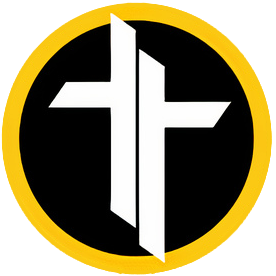Our Beliefs
St. Paul Lutheran teaches and responds to the love of the one true God. There is only one God, who is three persons: the Father, creator of the heavens and the earth; Jesus Christ, the Son, Our Lord, who being God became human to suffer and die for the sins of all people and was raised from the dead in victory over death and Satin; and the Holy Spirit, who creates saving faith through God’s Word and Sacraments. Through three persons, the Trinity is coequal and coeternal and is simply one God.
Bible Based Teaching
Here at St. Paul Lutheran, our teaching centers on the truths grounded and proven in the Bible. As “Lutherans” we accept Martin Luther’s Bible-based teachings contained in The Book of Concord. (http://lcms.org/lutheranconfessions) Martin Luther (1483 – 1546) lived in an age where the church had gone away from the teaching of the Bible. Luther and the protestant reformation focused on three components to their teaching: Grace Alone, Faith Alone, and Scripture Alone.
Grace alone
God loves the people of the world, even though they are sinful, rebel against Him and do not deserve His love. He sent Jesus, His Son, to love the unlovable and save the ungodly.
Faith alone
By His suffering and death as the substitute for all people of all time, Jesus purchased and won forgiveness and eternal life for them. Those who hear this Good News and believe it have the eternal life that it offers. God creates faith in Christ and gives people forgiveness through Him.
Scripture alone
The Bible is God’s inerrant and infallible Word, in which He reveals His Law and His Gospel of salvation in Jesus Christ. It is the sole rule and norm for Christian doctrine.
Denomination
St. Paul Lutheran is a member of the Lutheran Church – Missouri Synod (www.lcms.org) (LCMS) and holds to the teachings of the Bible and The Book of Concord. The Synod can be traced back to 1847, to group of German, Saxons who ended up in the St. Louis area. This group started off with 12 pastors and 14 congregations. Today, the LCMS has more than 6,000 congregations, more than 1,600 Early Childcare Centers and Preschools, more than 190 elementary schools, more than 600 middle schools, more than 100 high schools, 9 colleges, and 2 seminaries. Serving in these places are over 9,000 pastors, almost 22,000 teachers, and many other part time and full time called church workers.
